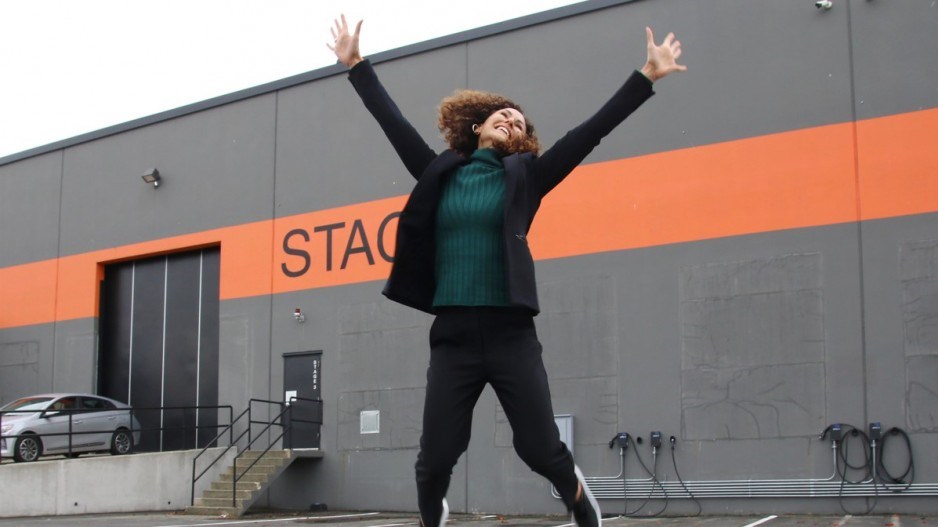Companies in B.C.'s film and TV sector are readying to ramp up with a surge in new productions now that Hollywood’s actors union has reached a tentative deal with studios to end its strike.
The SAG-AFTRA union yesterday said the 118-day actors' strike would officially end at 12:01 a.m. this morning, according to Variety.
Hollywood writers in September ended the second-longest strike in Tinseltown history – 148 days – after wreaking havoc on the B.C. film sector and its global counterparts.
Scarab Digital CEO Danny Ho told BIV this morning that he expects that productions can resume at his digital production company by December.
When the writers' strike ended, they started to write scripts and the rough rule of thumb is that productions need at least six to eight weeks of writers' work before starting production, he said.
"It's obviously a good thing," he said of the actors' strike's resolution.
"It affected us immensely."
His company had about 22 staff before the strikes and after a couple rounds of layoffs the company now employs 12 people. When the writers' strike started, there were some projects set to start production that would use Scarab's services and Ho expects that those can resume as soon as possible.
Other industry insiders have told BIV that they expect it could take up to six months for production houses to fully normalize activity after the actors follow the writers in ratifying new contracts.
Once that happens, the sector will still struggle to be as busy as it was in 2021, they say.
More global competition is feared, given that plenty of new sound stages have been built across Europe. B.C.’s tax incentives to lure productions also lag those in competing jurisdictions.
Combined, those hurdles could exceed B.C.’s advantages of:
• being close to Los Angeles and in the same time zone;
• having electrical plug-ins for sets so producers can be more sustainable and not need to use diesel generators; and
• having a wealth of talented workers in needed ancillary sectors.
The buzzword on many industry insiders’ lips is “reset.” They say Hollywood labour disruptions followed streaming giants realizing they could not continue to spend lavishly to create massive volumes of content as part of a relentless drive to increase subscriber counts.
Investors have become more demanding of large streaming services, such as those run by the Walt Disney Co. (NYSE:DIS) and Netflix Inc. (Nasdaq:NFLX). Netflix had a stutter-step in 2022 with global subscriber numbers temporarily falling. Disney this year saw its Disney+ subscriber count fall in several sequential quarters. It then yesterday announced that it had more than 150 million streaming subscriptions at the end of its last quarter, up from 146.7 million in the previous quarter.
Financial pain in the sector includes everyone from hairdressers to lighting technicians to grips, costume designers and others.
Vancouver Film Commissioner Geoff Teoli sent BIV a statement saying news of the actors' strike's end is a great relief to residents and small businesses that rely on the film industry.
"It has been an extremely hard year for so many and we are eager to help the industry get back on track quickly," he said. "I am excited about the size, quality, and diverse genres of projects that are lined up to get started; it’s going to be amazing to see our city back on screen and our citizens back to work.”
Creative BC recently estimated that B.C.'s film and TV industry employs about 88,000 workers with the equivalent of 40,000 full-time and equivalent jobs, most of which are in Metro Vancouver.
Vancouver Economic Commission (VEC) research holds that the industry spent a record $4.9 billion on film, TV, visual effects and animation in B.C. in 2022.
Gemma Martini, chair of the Motion Picture Production Industry Association of BC, has been charting the state of the sector’s downturn.
“I think we have 10 or 12 productions active in B.C., where we would generally have 50 for this time of year,” she said in early October. “That goes to show how far down we are. It was worse back in August.”
She is also CEO at Martini Film Studios, which has seen a similar decline in activity.
Vancouver Film Studios (VFS) president Pete Mitchell estimated that his facility saw business decline by about 90 per cent this summer. Normally it has about 15 productions a year at its 13 sound stages. That number of productions might not sound high, but the TV show The Flash took one of the facilities’ studios for about 10 years thanks to many renewals, he said. Productions often book VFS studios for six months at a time, and can use multiple sound stages at once, Mitchell said.
“Prior to the strike, in the preceding 10 years, we had virtually 100-per-cent occupancy,” he said.





